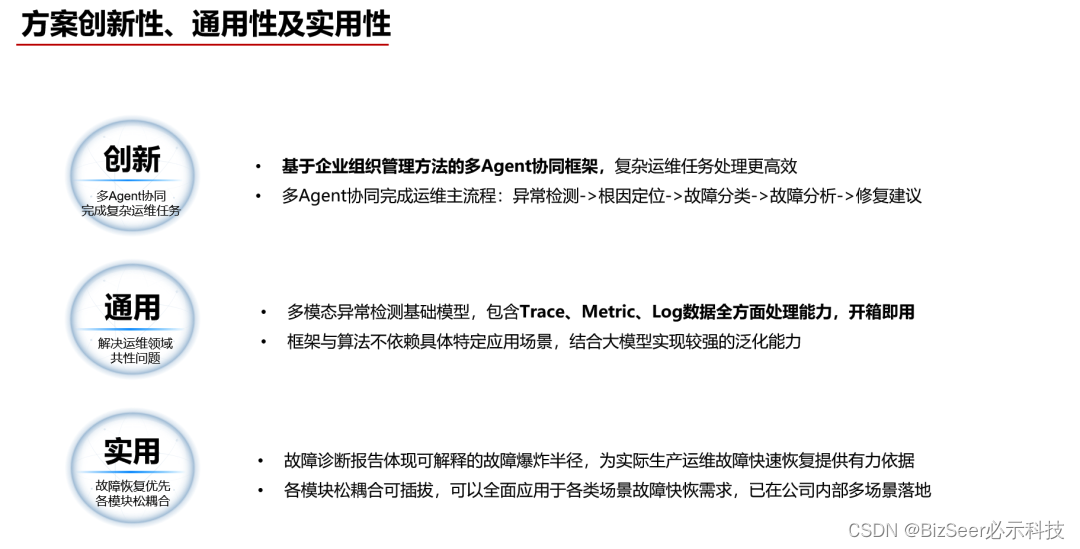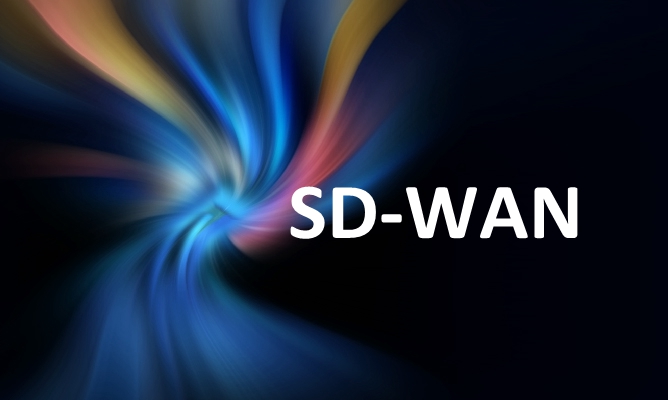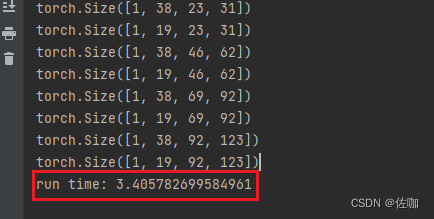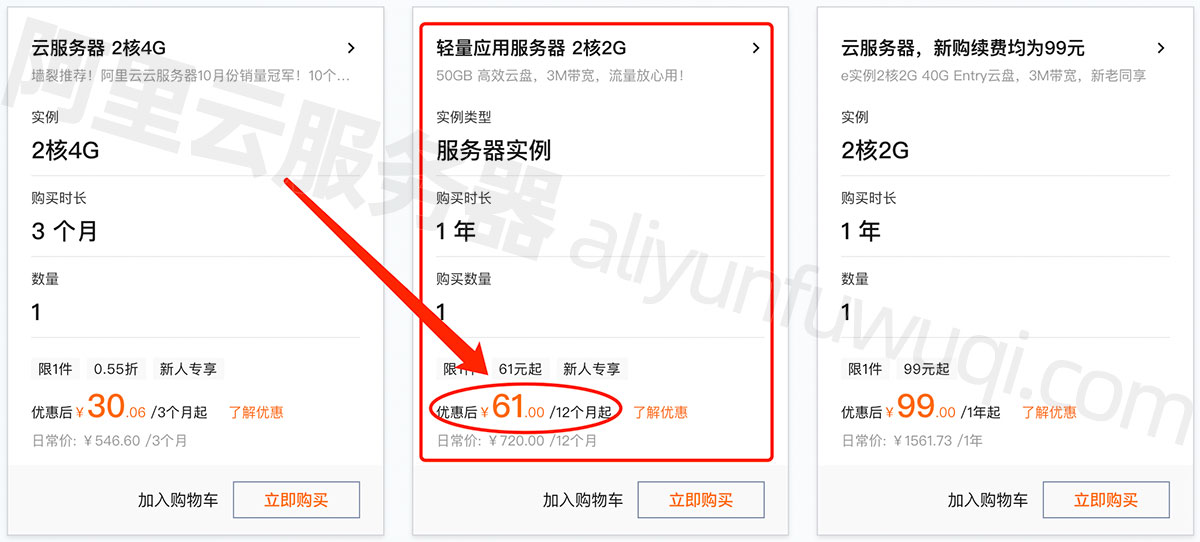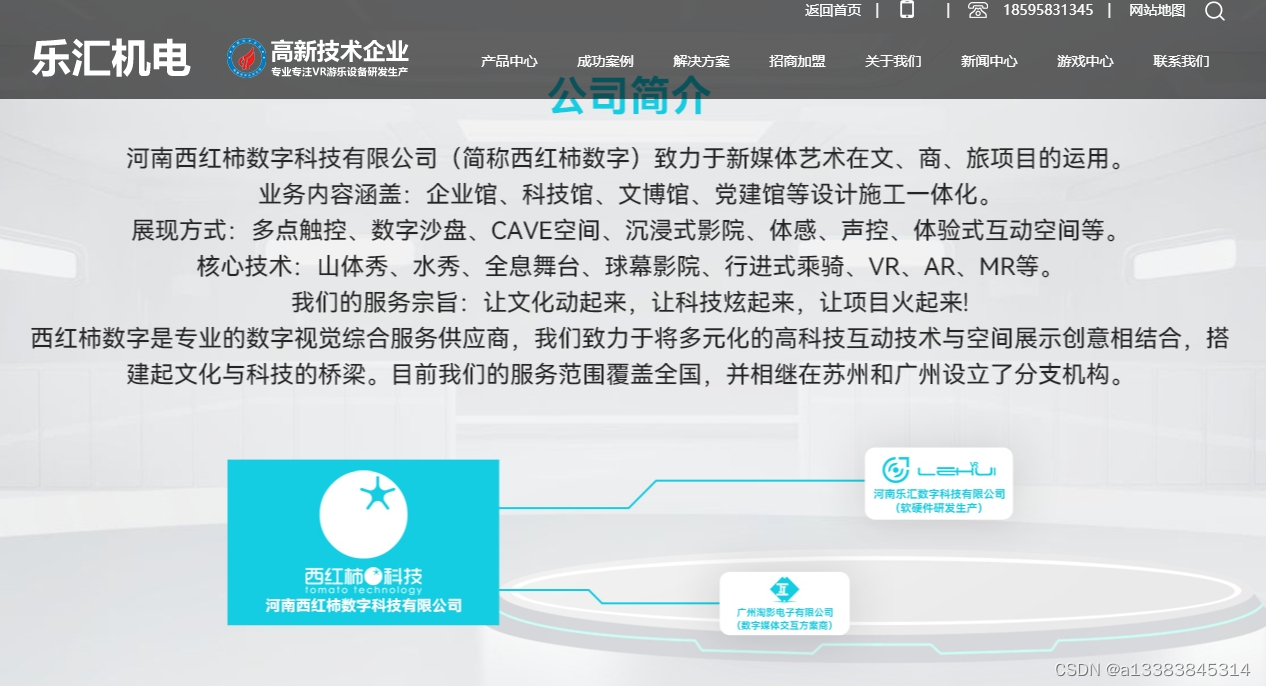文章目录
- libusb
- 自动刷新程序Code
- 目录结构
- Code
- 项目文件
- `usb`包
- `code`包
- 效果
- 描述
- 重置reset
- 热拔插
- 使用
- END
libusb
在操作USB相关内容时,有一个比较著名的库就是libusb。
官方网址:libusb

下载:
- 下载源码
- 官方编好的库
- github:Releases · libusb/libusb (github.com)


使用:libusb: Application Programming Interface (sourceforge.io)
- Functions
- Structures
- Enums

自动刷新程序Code
这里介绍一个基于libusb自动刷新usb的demo。
目录结构
3rdparty包- libusb的头文件和库
- 这里采用官方编好的现成的库
usb包- 基于C++对libusb的封装
- 此包为纯C++代码
code包- 基于Qt的ui和线程
E:.
└─usbReset│ main.cpp│ usbReset.pro│├─3rdparty│ └─libusb│ ├─include│ │ └─libusb-1.0│ │ libusb.h│ ││ └─MinGW32│ ├─dll│ │ libusb-1.0.dll│ │ libusb-1.0.dll.a│ ││ └─static│ libusb-1.0.a│├─code│ THREAD_TimerUsb.cpp│ THREAD_TimerUsb.h│ WIDGET_Main.cpp│ WIDGET_Main.h│ WIDGET_Main.ui│└─usbusb.priUSB_Hotplug.cppUSB_Hotplug.hUSB_Reset.cppUSB_Reset.h
Code
项目文件
usbReset.pro
QT += core
QT += widgets#CONFIG += console
CONFIG += c++17DESTDIR = $$PWD/bininclude($$PWD/usb/usb.pri)INCLUDEPATH += $$PWD/code
HEADERS += \code/THREAD_TimerUsb.h \code/WIDGET_Main.hSOURCES += \main.cpp \code/THREAD_TimerUsb.cpp \code/WIDGET_Main.cppFORMS += \code/WIDGET_Main.ui
usb/usb.pri
# 链接到libusb(采用静态库)
INCLUDEPATH += $$PWD/../3rdparty/libusb/include
HEADERS += $$PWD/../3rdparty/include/libusb/libusb-1.0/libusb.h
LIBS += -L$$PWD/../3rdparty/libusb/MinGW32/static/ -llibusb-1.0# 当前封装的包
INCLUDEPATH += $$PWD/..
HEADERS += \$$PWD/USB_Hotplug.h \$$PWD/USB_Reset.hSOURCES += \$$PWD/USB_Hotplug.cpp \$$PWD/USB_Reset.cpp
main.cpp
#include <QApplication>#include "WIDGET_Main.h"int main(int argc, char *argv[]) {QApplication app(argc, argv);MainWidget form;form.show();return app.exec();
}
usb包
USB_Reset.h
#ifndef MYUSB_H_1682212693
#define MYUSB_H_1682212693extern "C" {
#include "libusb-1.0/libusb.h"
}
#include <string>
#include <vector>namespace USB {class Reset final {
public:inline static const int EMPTY_POINTER_INT = 114514;private:/// for init & exitstatic libusb_context* context;static uint32_t obj_count;public:static int Reset_context();private:char str[1024]{};public:/// libusb_init()Reset();/// libusb_exit()~Reset();public:::std::vector<::std::string> Show_device();public:libusb_device_descriptor Find_descriptByidVendor(uint32_t Vendor);public:/*** vendor -> device* -> handle** handle* -> reset* handle* -> close*/libusb_device* Find_deviceByidVendor(uint32_t Vendor);libusb_device_handle* Get_handleByOpenDevice(libusb_device* device);int Reset_usbByHandle(libusb_device_handle* device_handle);void Close_deviceByHandle(libusb_device_handle* device_handle);
};} // namespace USB
#endif // MYUSB_H_1682212693
USB_Reset.cpp
#include "USB_Reset.h"namespace USB {
/*** @brief UsbBase::context* static data* context: 所有对象共享这一个全局的上下文对象* obj_count: 引用计数*/
libusb_context* Reset::context = nullptr;
uint32_t Reset::obj_count = 0;/*** @brief UsbBase::Reset_context* @return* static 重置上下文*/
int Reset::Reset_context() {/// 有实体对象才重置 contextif (0 != obj_count) {if (nullptr != context) {libusb_exit(context);context = nullptr;}return libusb_init(&context);}return LIBUSB_SUCCESS;
}/*** @brief UsbBase::UsbBase* constructor* 上下文的init* 维护引用计数*/
Reset::Reset() {/// 查看版本号const struct libusb_version* version = libusb_get_version();printf(">>>Libusb-Version:%s\n", version->describe);printf(">>>Libusb-Version:%d.%d.%d.%d\n",version->major,version->minor,version->micro,version->nano);/// 第一个对象,或者之前没有注册成功if (0 == obj_count || nullptr == context) {if (int res = libusb_init(&context); res != 0) {sprintf(str, "fail to init: %d\n", res);/// TODO/// 根据实际情况,日志、断言、异常等/// TODO}}obj_count += 1;
}/*** @brief UsbBase::~UsbBase* distructor* 维护引用计数* 上下文的退出*/
Reset::~Reset() {obj_count += -1;if (0 == obj_count) {if (nullptr != context) {libusb_exit(context);context = nullptr;}}
}/*** @brief UsbBase::show_device* just show device-list message*/
::std::vector<::std::string> Reset::Show_device() {::std::vector<::std::string> messageList;messageList.push_back("********************** show device-list message BEGIN ""**********************");/// help datalibusb_device** deviceList = nullptr;libusb_get_device_list(nullptr, &deviceList);for (int i = 0; deviceList[i] != nullptr; i += 1) {auto device = deviceList[i];struct libusb_device_descriptor descript;int ret = libusb_get_device_descriptor(device, &descript);if (LIBUSB_SUCCESS != ret) {continue;}sprintf(str,"*""idVendor:%6d ""idProduct:%6d ""bDeviceClass:%6d ""(bus:%3d, device:%3d)""*",descript.idVendor, descript.idProduct, descript.bDeviceClass,libusb_get_bus_number(device),libusb_get_device_address(device));messageList.push_back(str);}messageList.push_back("********************** show device-list message END ""************************");return messageList;
}/*** @brief MyUsb::Find_descriptByidVendor* @param idVendor* @return* 获取设备描述对象*/
libusb_device_descriptor Reset::Find_descriptByidVendor(uint32_t idVendor) {/// retlibusb_device_descriptor descriptor;/// help datalibusb_device_handle* deviceHandle = nullptr;libusb_device** deviceList = nullptr;libusb_get_device_list(nullptr, &deviceList);for (int i = 0; deviceList[i] != nullptr; i += 1) {auto device = deviceList[i];int ret = libusb_get_device_descriptor(device, &descriptor);if (LIBUSB_SUCCESS != ret) {continue;}if (descriptor.idVendor == idVendor) {const int isOpen = libusb_open(device, &deviceHandle);if (LIBUSB_SUCCESS == isOpen) {libusb_close(deviceHandle);break;}}}return descriptor;
}/*** @brief UsbBase::Find_deviceByidVendor* @param Vendor* @return* 获取device*/
libusb_device* Reset::Find_deviceByidVendor(uint32_t Vendor) {/// retlibusb_device* device = nullptr;/// help datalibusb_device_handle* deviceHandle = nullptr;libusb_device** deviceList = nullptr;libusb_get_device_list(nullptr, &deviceList);for (int i = 0; deviceList[i] != nullptr; i += 1) {device = deviceList[i];libusb_device_descriptor descriptor;int ret = libusb_get_device_descriptor(device, &descriptor);if (LIBUSB_SUCCESS != ret) {continue;}if (descriptor.idVendor == Vendor) {const int isOpen = libusb_open(device, &deviceHandle);if (LIBUSB_SUCCESS == isOpen) {libusb_close(deviceHandle);break;} else {device = nullptr;}} else {device = nullptr;}}return device;
}/*** @brief UsbBase::Get_handleByOpenDevice* @param device* @return* 根据传入的设备指针* 通过open操作* 获取句柄指针*/
libusb_device_handle* Reset::Get_handleByOpenDevice(libusb_device* device) {if (nullptr == device) {return nullptr;}libusb_device_handle* deviceHandle = nullptr;const int isOpen = libusb_open(device, &deviceHandle);if (LIBUSB_SUCCESS == isOpen) {return deviceHandle;} else {return nullptr;}
}/*** @brief UsbBase::Reset_usbByHandle* @param device_handle* @return* 通过句柄重置设备* 为0则表示成功*/
int Reset::Reset_usbByHandle(libusb_device_handle* device_handle) {if (nullptr == device_handle) {return EMPTY_POINTER_INT;}const int isReset = libusb_reset_device(device_handle);//! TODO if (isReset ?= 0) => logreturn isReset;
}/*** @brief UsbBase::Close_deviceByHandle* @param device_handle* 手动通过句柄指针关闭设备*/
void Reset::Close_deviceByHandle(libusb_device_handle* device_handle) {if (nullptr == device_handle) {return;}libusb_close(device_handle);
}
} // namespace USB
USB_Hotplug.h
#ifndef HOTPLUG_H_27452998650
#define HOTPLUG_H_27452998650extern "C" {
#include "libusb-1.0/libusb.h"
}namespace USB {
class Hotplug final {
private:static libusb_device_handle *m_deviceHandle;private:static int LIBUSB_CALL usb_arrived_callback(struct libusb_context *ctx,struct libusb_device *dev,libusb_hotplug_event event,void *userdata);static int LIBUSB_CALL usb_left_callback(struct libusb_context *ctx,struct libusb_device *dev,libusb_hotplug_event event,void *userdata);private:char str[1024]{};private:libusb_hotplug_callback_handle usb_arrived_handle;libusb_hotplug_callback_handle usb_left_handle;libusb_context *context = nullptr;private:uint32_t m_regiest_vendor = LIBUSB_HOTPLUG_MATCH_ANY;uint32_t m_regiest_product = LIBUSB_HOTPLUG_MATCH_ANY;uint32_t m_regiest_deviceClass = LIBUSB_HOTPLUG_MATCH_ANY;private:Hotplug();public:Hotplug(uint32_t vendor, uint32_t product, uint32_t deviceClass);~Hotplug();public:int Register_arrived();int Register_left();
};
} // namespace USB#endif // HOTPLUG_H_27452998650
USB_Hotplug.cpp
#include "USB_Hotplug.h"#include <iostream>namespace USB {
/*** @brief Hotplug::m_deviceHandle* 主要用于静态的回调函数*/
libusb_device_handle *Hotplug::m_deviceHandle = nullptr;/*** @brief Hotplug::usb_arrived_callback* @param ctx* @param dev* @param event* @param userdata* @return* 热拔插 arrive 的回调*/
int Hotplug::usb_arrived_callback(libusb_context *ctx, libusb_device *dev,libusb_hotplug_event event, void *userdata) {struct libusb_device_handle *handle;struct libusb_device_descriptor desc;unsigned char buf[512];int rc;libusb_get_device_descriptor(dev, &desc);printf("Add usb device: \n");printf("\tCLASS(0x%x) SUBCLASS(0x%x) PROTOCOL(0x%x)\n", desc.bDeviceClass,desc.bDeviceSubClass, desc.bDeviceProtocol);printf("\tVENDOR(0x%x) PRODUCT(0x%x)\n", desc.idVendor, desc.idProduct);rc = libusb_open(dev, &handle);if (LIBUSB_SUCCESS != rc) {printf("Could not open USB device\n");return 0;}memset(buf, 0, sizeof(buf));rc = libusb_get_string_descriptor_ascii(handle, desc.iManufacturer, buf,sizeof(buf));if (rc < 0) {printf("Get Manufacturer failed\n");} else {printf("\tManufacturer: %s\n", buf);}memset(buf, 0, sizeof(buf));rc = libusb_get_string_descriptor_ascii(handle, desc.iProduct, buf,sizeof(buf));if (rc < 0) {printf("Get Product failed\n");} else {printf("\tProduct: %s\n", buf);}memset(buf, 0, sizeof(buf));rc = libusb_get_string_descriptor_ascii(handle, desc.iSerialNumber, buf,sizeof(buf));if (rc < 0) {printf("Get SerialNumber failed\n");} else {printf("\tSerialNumber: %s\n", buf);}libusb_close(handle);return 0;
}/*** @brief Hotplug::usb_left_callback* @param ctx* @param dev* @param event* @param userdata* @return* 热拔插left的回调*/
int Hotplug::usb_left_callback(libusb_context *ctx, libusb_device *dev,libusb_hotplug_event event, void *userdata) {struct libusb_device_descriptor desc;libusb_get_device_descriptor(dev, &desc);const int isReset = libusb_reset_device(m_deviceHandle);return isReset;
}/*** @brief Hotplug::Hotplug* 构造的时候init*/
Hotplug::Hotplug() {libusb_init(&context);
}/*** @brief Hotplug::Hotplug* @param vendor* @param product* 委托构造*/
Hotplug::Hotplug(uint32_t vendor, uint32_t product, uint32_t deviceClass) : Hotplug() {/// data{m_regiest_vendor = vendor;m_regiest_product = product;m_regiest_deviceClass = deviceClass;}/// find{libusb_device **m_deviceList;libusb_get_device_list(nullptr, &m_deviceList);for (int i = 0; m_deviceList[i] != nullptr; i += 1) {auto device = m_deviceList[i];struct libusb_device_descriptor descript;int ret = libusb_get_device_descriptor(device, &descript);if (ret < 0) {sprintf(str,"Error libusb_get_device_descriptor idx = %d res = %d\n", i,ret);}if (descript.idVendor == vendor && descript.idProduct == product) {const int isOpen =libusb_open(m_deviceList[i], &m_deviceHandle);if (LIBUSB_SUCCESS == isOpen) {break;}}}} /// find/// test{Register_arrived();Register_left();}
}/*** @brief Hotplug::~Hotplug* 析构的时候注销和释放句柄*/
Hotplug::~Hotplug() {libusb_hotplug_deregister_callback(context, usb_arrived_handle);libusb_hotplug_deregister_callback(context, usb_left_handle);libusb_exit(context);
}/*** @brief Hotplug::Register_arrived* @return* 注册热拔插arrive*/
int Hotplug::Register_arrived() {int res = libusb_hotplug_register_callback(context, LIBUSB_HOTPLUG_EVENT_DEVICE_ARRIVED, LIBUSB_HOTPLUG_NO_FLAGS,m_regiest_vendor, m_regiest_product, m_regiest_deviceClass,Hotplug::usb_arrived_callback, NULL, &usb_arrived_handle);return res;
}/*** @brief Hotplug::Register_left* @return* 注册热拔插left*/
int Hotplug::Register_left() {int res = libusb_hotplug_register_callback(context, LIBUSB_HOTPLUG_EVENT_DEVICE_LEFT, LIBUSB_HOTPLUG_NO_FLAGS,m_regiest_vendor, m_regiest_product, m_regiest_deviceClass,Hotplug::usb_left_callback, NULL, &usb_left_handle);return res;
}
} // namespace USB
code包
WIDGET_Main.h
#ifndef FORM_H_27453073957
#define FORM_H_27453073957#include <QScopedPointer>
#include <QVector>
#include <QWidget>#include "THREAD_TimerUsb.h"namespace Ui {
class MainWidget;
}class MainWidget : public QWidget {Q_OBJECTprivate:QScopedPointer<Ui::MainWidget> ui;private:TimerUsb m_usb;public:explicit MainWidget(QWidget *parent = nullptr);~MainWidget();private:void show_usbDeviceMsgAll();void start_work();
};#endif // FORM_H_27453073957
WIDGET_Main.cpp
#include "WIDGET_Main.h"#include <QDebug>
#include <QMutex>
#include <QThread>
#include <QTimer>#include "ui_WIDGET_Main.h"
#include "usb/USB_Reset.h"QWidget *g_widgetDisplayBoard = nullptr;
QtMessageHandler g_oldMessageHandler = nullptr;
QMutex g_dispalyMutex;/*** debug 重定向*/
void newDebugHandlerFunc(QtMsgType type, const QMessageLogContext &context, const QString &msg) {QMutexLocker locker(&g_dispalyMutex);if (g_widgetDisplayBoard) {dynamic_cast<QTextEdit *>(g_widgetDisplayBoard)->append(msg);} else {g_oldMessageHandler(type, context, msg);}
}/*** @brief MainWidget::MainWidget* @param parent* 1. debug重定向* 2. connect*/
MainWidget::MainWidget(QWidget *parent) : QWidget(parent), ui(new Ui::MainWidget{}) {ui->setupUi(this);setWindowTitle("usb controller");/// debug -> widget{g_widgetDisplayBoard = ui->textEdit;g_oldMessageHandler = qInstallMessageHandler(newDebugHandlerFunc);}/// connect{connect(ui->btn_showAll, &QPushButton::clicked, this,&MainWidget::show_usbDeviceMsgAll);connect(ui->btn_clear, &QPushButton::clicked, ui->textEdit,&QTextEdit::clear);connect(ui->btn_start, &QPushButton::clicked, this,&MainWidget::start_work);connect(&m_usb, &TimerUsb::signal_message, this,[](const QString &msg) { qInfo() << msg; });}/// before exe{ show_usbDeviceMsgAll(); }
}/*** @brief MainWidget::~MainWidget* 将线程安全关闭*/
MainWidget::~MainWidget() {if (m_usb.isRunning()) {m_usb.quit();m_usb.wait();}
}/*** @brief MainWidget::show_usbDeviceMsgAll* 展示所有usb设备的信息* 因为设计的是通用库* 因此返回的是std::vector<std::string>*/
void MainWidget::show_usbDeviceMsgAll() {for (auto &&s : USB::Reset().Show_device()) {qDebug() << s.c_str();}
}/*** @brief MainWidget::start_work* 检测线程启动*/
void MainWidget::start_work() {uint vendor = ui->edit_Vendor->text().toUInt();double time = ui->edit_timeout->text().toDouble();m_usb.Set_usbDeviceVendor(vendor);m_usb.Set_timerInterval(time * 1000);m_usb.Set_timerStart();if (false == m_usb.isRunning()) {qDebug() << "=== start before ===";m_usb.start();qDebug() << "=== start after ===";}
}
WIDGET_Main.ui
<?xml version="1.0" encoding="UTF-8"?>
<ui version="4.0"><class>MainWidget</class><widget class="QWidget" name="MainWidget"><property name="geometry"><rect><x>0</x><y>0</y><width>726</width><height>480</height></rect></property><property name="windowTitle"><string>UsbForm</string></property><layout class="QVBoxLayout" name="verticalLayout"><item><widget class="QTextEdit" name="textEdit"><property name="styleSheet"><string notr="true"/></property></widget></item><item><widget class="QWidget" name="widget" native="true"><layout class="QGridLayout" name="gridLayout"><item row="0" column="1"><widget class="QLineEdit" name="edit_Vendor"><property name="font"><font><pointsize>12</pointsize></font></property><property name="text"><string>8746</string></property></widget></item><item row="0" column="0"><widget class="QLabel" name="label_Vendor"><property name="font"><font><pointsize>12</pointsize></font></property><property name="text"><string>目标Vendor</string></property></widget></item><item row="1" column="0"><widget class="QLabel" name="label_timeout"><property name="font"><font><pointsize>12</pointsize></font></property><property name="text"><string>倒计时(秒)</string></property></widget></item><item row="1" column="1"><widget class="QLineEdit" name="edit_timeout"><property name="font"><font><pointsize>12</pointsize></font></property><property name="text"><string>2</string></property></widget></item><item row="2" column="0"><widget class="QPushButton" name="btn_showAll"><property name="font"><font><pointsize>18</pointsize></font></property><property name="text"><string>设备usb列表</string></property></widget></item><item row="2" column="1"><widget class="QPushButton" name="btn_clear"><property name="font"><font><pointsize>18</pointsize></font></property><property name="text"><string>清空列表</string></property></widget></item></layout></widget></item><item><widget class="QPushButton" name="btn_start"><property name="font"><font><pointsize>18</pointsize></font></property><property name="text"><string>开始</string></property></widget></item></layout></widget><resources/><connections/>
</ui>THREAD_TimerUsb.h
#ifndef THREADUSB_H_70403004403
#define THREADUSB_H_70403004403#include <QThread>
#include <QTimer>class TimerUsb : public QThread {Q_OBJECT
private:uint32_t m_usbDeviceVendor = 0;private:QTimer m_timer;int m_timerIntervalMsec = 1500;public:TimerUsb();public:void Set_usbDeviceVendor(uint32_t vendor);public:void Set_timerInterval(int msec = 1500);void Set_timerStart();void Set_timerStop();bool Is_timerRunning();protected:void run() override;signals:void signal_message(const QString&);
};#endif // THREADUSB_H_70403004403
THREAD_TimerUsb.cpp
#include "THREAD_TimerUsb.h"#include <QDebug>
#include <QTimer>#include "usb/USB_Reset.h"#if 0
#define DEBUG_MODEL qInfo() <<
#else
#define DEBUG_MODEL emit this->signal_message
#endif/*** @brief ThreadUsb::ThreadUsb* construct*/
TimerUsb::TimerUsb() {Set_timerInterval();
}/*** @brief ThreadUsb::Set_usbDeviceVendor* @param vendor* 根据 vendor 查询设备*/
void TimerUsb::Set_usbDeviceVendor(uint32_t vendor) {this->m_usbDeviceVendor = vendor;
}/*** @brief ThreadUsb::Set_timerInterval* @param msec* 设置reset间隔*/
void TimerUsb::Set_timerInterval(int msec) {this->m_timerIntervalMsec = msec;m_timer.setInterval(m_timerIntervalMsec);
}/*** @brief TimerUsb::Set_timerStart* 启动定时器,但不启动线程*/
void TimerUsb::Set_timerStart() {this->m_timer.start();
}/*** @brief TimerUsb::Set_timerStop* 关闭定时器,但不关闭线程*/
void TimerUsb::Set_timerStop() {this->m_timer.stop();
}/*** @brief TimerUsb::Is_timerRunning* @return* 定时器是否运行*/
bool TimerUsb::Is_timerRunning() {return this->m_timer.isActive();
}/*** @brief ThreadUsb::run* 定时器timeout一次,usb-reset一次*/
void TimerUsb::run() {USB::Reset usb;libusb_device* device = nullptr;/// 为了防止刚启动的时候没有获得/// 高强度轮询获取const size_t loopDeviceCount = 1e5 + 10;const size_t loopContextPeriod = 1e3;for (size_t i = 0; i < loopDeviceCount; i += 1) {device = usb.Find_deviceByidVendor(this->m_usbDeviceVendor);if (nullptr != device) {break;} else {if (i % loopContextPeriod == 0) {DEBUG_MODEL("device is null & context resert");USB::Reset::Reset_context();}}}if (nullptr == device) {DEBUG_MODEL("libusb_device is null & Thread end!");return;} else {DEBUG_MODEL("libusb_device require ok!");}libusb_device_handle* handle = usb.Get_handleByOpenDevice(device);if (handle == nullptr) {DEBUG_MODEL("libusb_device require is null & Thread end!");return ;} else {DEBUG_MODEL("libusb_device_handle require ok!");}auto con = connect(&this->m_timer, &QTimer::timeout, [&]() {int res = usb.Reset_usbByHandle(handle);if (LIBUSB_SUCCESS == res) {DEBUG_MODEL("reset Success");} else {DEBUG_MODEL("reset Error; errorType = " + QString::number(res));}/// 句柄不归还,持续重置// usb.Close_deviceByHandle(handle);});/// 开启事件循环exec();this->m_timer.stop();disconnect(con);
}
效果

界面功能比较简单,基本就是widget中的代码,设置好vendor和倒计时后点击开始即可。
目前身边没有可以测试的usb设备,因此不展示具体效果。
其中USB::Reset是经过测试可用的。
描述
本demo主要就是libusb的封装,然后是对于封装的简单调用。
重置reset
基本思路:vendor->device*->handle*
然后使用handle*进行reset和最后的close。
- 获取
device*- 获取设备序列
libusb_get_device_list() - 遍历序列,获取每个设备的描述信息
libusb_get_device_descriptor() - 对比描述信息,确认是哪个
device*。并测试是否能正常open。
- 获取设备序列
- 获取
handle*- 通过
libusb_open()即测试打开的同时就能获取
- 通过
- 使用
handle*进行reset- 使用
libusb_reset_device()
- 使用
- 关闭
handle*- 使用
libusb_close()
- 使用
注意:有的vendor是一样的编号,请根据实际的情景和需求改变具体的查找规则。
热拔插
热拔插部分没有测试,不做重点描述。
但是基本原理就是注册拔&插的回调函数。
libusb_hotplug_register_callback()
- 标记:
LIBUSB_HOTPLUG_EVENT_DEVICE_ARRIVED - 标记:
LIBUSB_HOTPLUG_EVENT_DEVICE_LEFT
使用
全在QThread::run()函数中。
在实际作用时,可能因为物理设备实际问题,导致设备指针和句柄的获取失败。
因此可以设置一个比较大的循环,无脑获取多次,直到获取成功,但若多次获取失败,则直接视为失败了。
然后启动一个定时器,
注意:请不要close句柄。因为设备的实际请款,可能关闭后就再获取不到了,只要不随便乱插,设备标号和句柄是不会变的,因此直接保留好。直到真正不需要时再关闭(根据实际业务和逻辑需求)。

